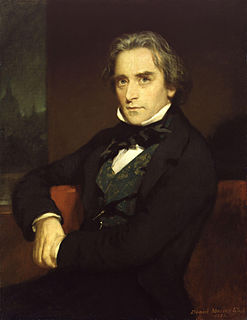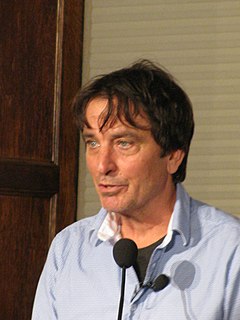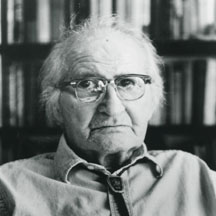A Quote by Mahmoud Darwish
When a writer declares that his first book is his best, that is bad. I progress successively from book to book.
Related Quotes
Because he did not have time to read every new book in his field, the great Polish anthropologist Bronislaw Malinowski used a simple and efficient method of deciding which ones were worth his attention: Upon receiving a new book, he immediately checked the index to see if his name was cited, and how often. The more "Malinowski" the more compelling the book. No "Malinowski", and he doubted the subject of the book was anthropology at all.
Wormholes were first introduced to the public over a century ago in a book written by an Oxford mathematician. Perhaps realizing that adults might frown on the idea of multiply connected spaces, he wrote the book under a pseudonym and wrote it for children. His name was Charles Dodgson, his pseudonym was Lewis Carroll, and the book was Through The Looking Glass.
Chrysostom, I remember, mentions a twofold book of God: the book of the creatures, and the book of the scriptures. God, having taught us first of all by his works, did it afterwards, by his Words. We will now for a while read the former of these books; 'twill help us in reading the latter. They will admirably assist one another.
Detach the writer from the milieu where he has experienced his greatest sense of belonging, and you have created a discontinuity within his personality, a short circuit in his identity. The result is his originality, his creativity comes to an end. He becomes the one-book novelist or the one-trilogy writer.
Chapter One. The Bride." He held up the book then. "I'm reading it to you for relax." He practically shoved the book in my face. "By S. Morgenstern. Great Florinese writer. The Princess Bride. He too came to America. S. Morgenstern. Dead now in New York. The English is his own. He spoke eight tongues." Here my father put down the book and held up all his fingers. "Eight. Once in Florin City...
Of all man’s instruments, the most wondrous, no doubt, is the book. The other instruments are extensions of his body. The microscope, the telescope, are extensions of his sight; the telephone is the extension of his voice; then we have the plow and the sword, extensions of the arm. But the book is something else altogether: the book is an extension of memory and imagination.






































